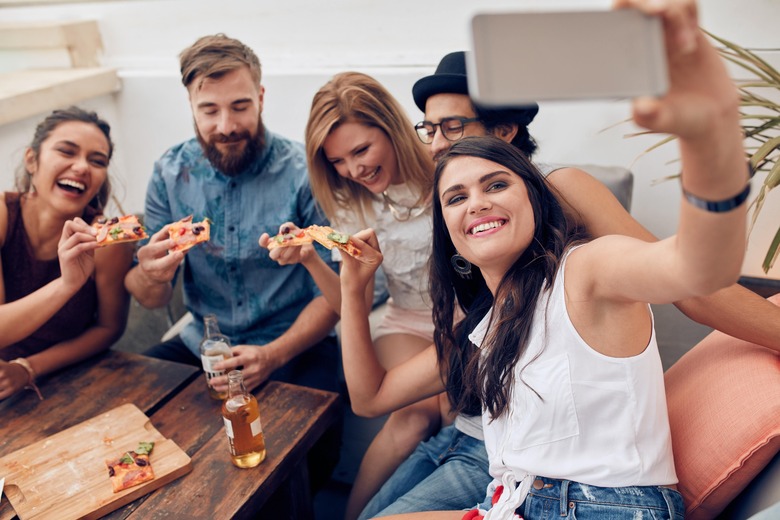The Real Reason You Can't Stop Eating When You're Drunk (And What You Can Do About It)
We've all been there: It's 3 a.m., you've just made it home after a night out at the bar, and before you know it, you've ordered a pizza. That pizza comes. You eat the entire thing.
What, that hasn't happened to you? Either:
- You're lying, or
- Your drunk food of choice isn't pizza. Maybe you got enchiladas or a bacon-double-cheeseburger with extra fries instead.
But regardless, you've probably gone ham on one snack or another after a night out. We all do this. Scientists have puzzled over this phenomenon for ages. After all, it's been proven that alcohol doesn't actually make you any hungrier. The same study showed that alcohol doesn't cause your body to need more energy or calories, either.
And yet weekend after weekend, college students, 20-somethings, and many more night owls arrive home after a high-proof evening only to rip open bags of Doritos and devour grilled cheese sandwiches. What's going on?
Essentially, alcohol messes with your brain's systems in a way that encourages overeating. For one, alcohol reduces your impulse control. So when you have an impulse to eat something, you are less likely to think about the health consequences and more likely to just go for it. Alcohol also causes a decrease in your memory capacity. This means you probably are forgetting how much you've already eaten and are going in for more.
But most notably, alcohol affects your neurons — the cells that make up your nervous system. These neurons, altered by the booze, may fire at times they otherwise wouldn't, telling your brain over and over again that it needs food.
In tandem with that effect, alcohol decreases the production of the hormone leptin. Leptin is responsible for feelings of fullness and satiation.
So, in summary, your drunk brain plays a cruel trick on you: It's telling you to eat while simultaneously suppressing signs that you're full.
What can you do about it?
To prevent overeating when drunk, there are a few precautions you can take.
For one, you can eat a full and balanced meal before drinking. This not only prevents the initial feelings of food deprivation that could spiral out of control under the influence, but also helps to regulate your level of intoxication. More food means you'll be less drunk, and therefore less likely to go on an eating spree.
Keep healthy options waiting at home. When you arrive, you'll be reminded of your healthier sober choices and go munch on those instead.
When you do make it home, drink water and go straight to bed. Make it into a habit. Since thirst is often confused for hunger, the water might be all you needed anyway.
